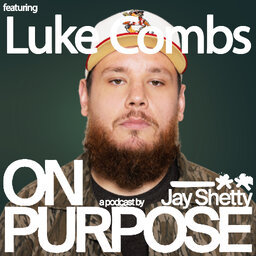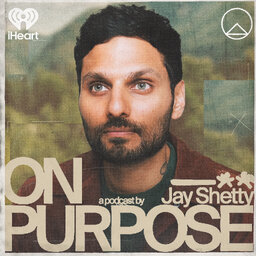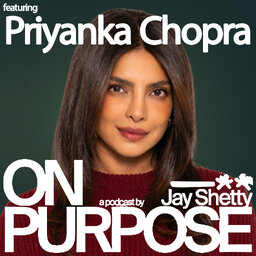Kerry Washington ON: How To Shift Anger Into Compassion, Shame Into Strength and Break Generational Trauma
Have you ever resented someone from keeping a secret from you?
Do you often put other people's feelings before your own?
In this incredibly vulnerable episode with Kerry Washington, we dive into the complicated nature of family and generational trauma. We learn about how both compassion and pain co-exist. We explore how to receive and react to challenging news. This episode is one that you definitely do not want to miss if you have ever dealt with navigating familial relationships and dynamics.
Kerry Washington is an Emmy award winning, SAG & Emmy- nominated actor, producer and director, and activist. Washington received widespread recognition for her role as Olivia Pope on ABC’s hit drama Scandal.
Today we get to see a side of Kerry that we’ve never seen or heard before. She takes us through a journey of unveiling a long guarded family secret. A secret that took her down a journey of transformation, resilience and healing. This is a story that we can all relate to in our own ways.
If you love this episode, Kerry’s new memoir is Thicker Than Water and you can hear even more stories about how Kerry has navigated challenges of life.
This conversation is an invitation to explore the depths of truth, the human heart and the transformative power of rewriting your own story.
In this interview, you will learn:
The family secret that changed her life
How she leaned into compassion and not anger
How do you share challenging news to your children or loved ones?
How she embraced her new truth and allowed herself to take control of her narrative
The secret to what has allowed her to be deeply rooted
How we can hold space for many truths at once
How the revelation of a truth can make way for greater and deeper love
We invite you to join us on this deep exploration of secrets, truth, self discovery and witnessing the power of compassion and love in the presence of pain.
With Love and Gratitude,
Jay Shetty
What We Discuss:
00:00 Intro
03:15 What is a childhood memory that stands out to you?
09:11 Kerry describes a panic attack she had at age 7
12:55 “I wasn’t emotionally safe”
16:11 Kerry's feeling of needing to perform at a young age
19:15 Why has Kerry been trying to walk away from acting?
26:30 How we are impacted by our dharma and how we can’t extract our dharna from ourselves
30:37: “I survived a childhood where I learned what truth does not look like and so I am really aware of what it looks like now.”
32:30 How can we get closer to our own personal truth?
33:40: Why keeping ourselves busy = control
37:30 Kerry had to redefine what success means to her
38:08 “Everytime I sat down to write it didn’t feel honest.”
38:50 **book spoiler alert - Kerry shares news that changed her life
39:25 “So my parents sat me down and told me…”
49:25 How to move forward with love after receiving life-changing news
59:08 Growing up with shame
01:03:36 How to have compassion over anger
01:16:16 “Sometimes the truth seems so scary.”
01:16:36 How does a parent tell their kids life changing information?
01:21:19 Bonding together as a family not a part after trauma
01:26:32 How we should allow ourselves to be nurtured by love.
01:32:30 Kerry Washington on Final Five
Episode Resources:
Kerry Washington | Twitter
Kerry Washington | Instagram
Kerry Washington | Facebook
Kerry Washington | YouTube
Kerry Washington | TikTok
In 1 playlist(s)
On Purpose with Jay Shetty
My name is Jay Shetty, and my purpose is to make wisdom go viral. I’m fortunate to have fascinating …Social links
Follow podcast
Recent clips

LUKE COMBS: The Man Behind The Success (Marriage, Fatherhood & Life With OCD)
1:43:07

Don't Waste Your Life (Use THIS Daily Shift To Build a Life That ACTUALLY Feels Meaningful)
21:42

PRIYANKA CHOPRA JONAS: Fame, Motherhood, Love and the Moment That Changed Everything
1:49:49
 On Purpose with Jay Shetty
On Purpose with Jay Shetty